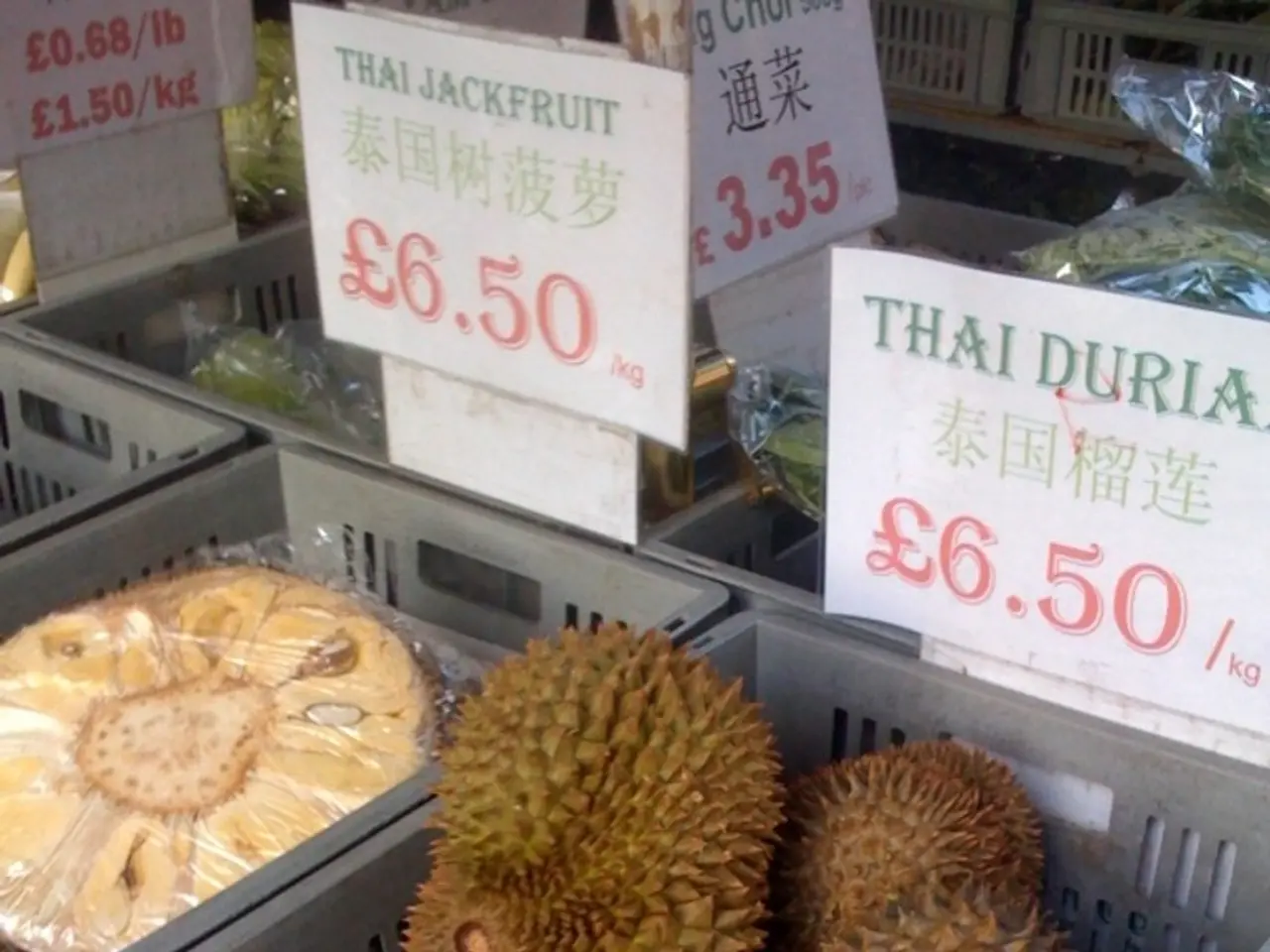India's agrarian export focus shifts towards specialized, premium agricultural products in the future.
India's horticulture sector has shown significant growth in recent years, with exports of fruits, vegetables, and processed foods on the rise. However, a trade deficit persists, as imports exceeded exports in FY 2023-24, reaching USD 2.7 billion compared to USD 2 billion in exports. This situation, despite India's natural strength in the sector, has prompted the need for strategic changes.
A joint study by the Agricultural and Processed Food Products Export Development Authority (APEDA) and the Indian Council for Research on International Economic Relations (ICRIER) has outlined a roadmap to transform India from a staple-focused exporter to a global leader in high-value agri-exports. The aim is to support the country's ambitious export targets, foster inclusive growth, and create a more resilient and value-driven agricultural economy.
One of the key strategies proposed is the establishment of integrated export clusters. These hubs, which would integrate cold storage, packhouses, quality labs, and reefer logistics, are planned for Jalgaon and Solapur for bananas, Ratnagiri, Junagadh, and Malihabad for mangoes, and Banaskantha for potatoes.
Another crucial aspect is strengthening sea freight infrastructure. By reducing reliance on costly air routes for perishable produce, lowering costs and increasing efficiency will be possible, making India more competitive in the global market.
Cluster-based development is also a focus, with the aim of specialising in specific crops across regions to enhance production and export readiness.
To counter high tariffs and non-tariff barriers in key markets, the report urges India to negotiate Free Trade Agreements (FTAs) with the EU, USA, Japan, South Korea, and GCC countries. It also suggests enhancing ties with Russia, ASEAN, and African markets via rupee-trade mechanisms and diaspora-driven demand.
GI tagging, branding, and digital marketing are recommended to enhance global visibility and niche market presence for Indian products. This includes launching marketing campaigns for GI-tagged mangoes and organic bananas and premium potato products.
The report also emphasises the importance of integrating Farmer Producer Organizations (FPOs), startups, and private players to build resilient and scalable agri-export ecosystems. This includes providing training, digital tools, and export finance, facilitating direct linkages with exporters and large buyers, and supporting mango pulp processors and potato chip makers to scale operations.
India's banana exports have shown promising growth, with exports increasing from USD 25 million in 2010 to USD 250.6 million in 2023. With demand rising globally for convenient, high-quality, and healthy food, the opportunity is ripe for India to shift from being a staple-focused exporter to a global leader in high-value agri-exports.
The study also recommends accelerated R&D by ICAR, CPRI, and global seed firms to develop climate-resilient, export-suitable varieties. By implementing these strategic recommendations, India can bridge the gap between its strong agricultural production capabilities and its relatively low global export presence, especially in high-value crops like bananas, mangoes, and potatoes.
Investing in the development of integrated export clusters and strengthening sea freight infrastructure could help India become competitive in the global market, particularly in high-value agri-exports like bananas, mangoes, and potatoes. To enhance the global visibility and market presence of Indian products, it is suggested to focus on GI tagging, branding, and digital marketing, such as launching marketing campaigns for GI-tagged mangoes and organic bananas and premium potato products.




